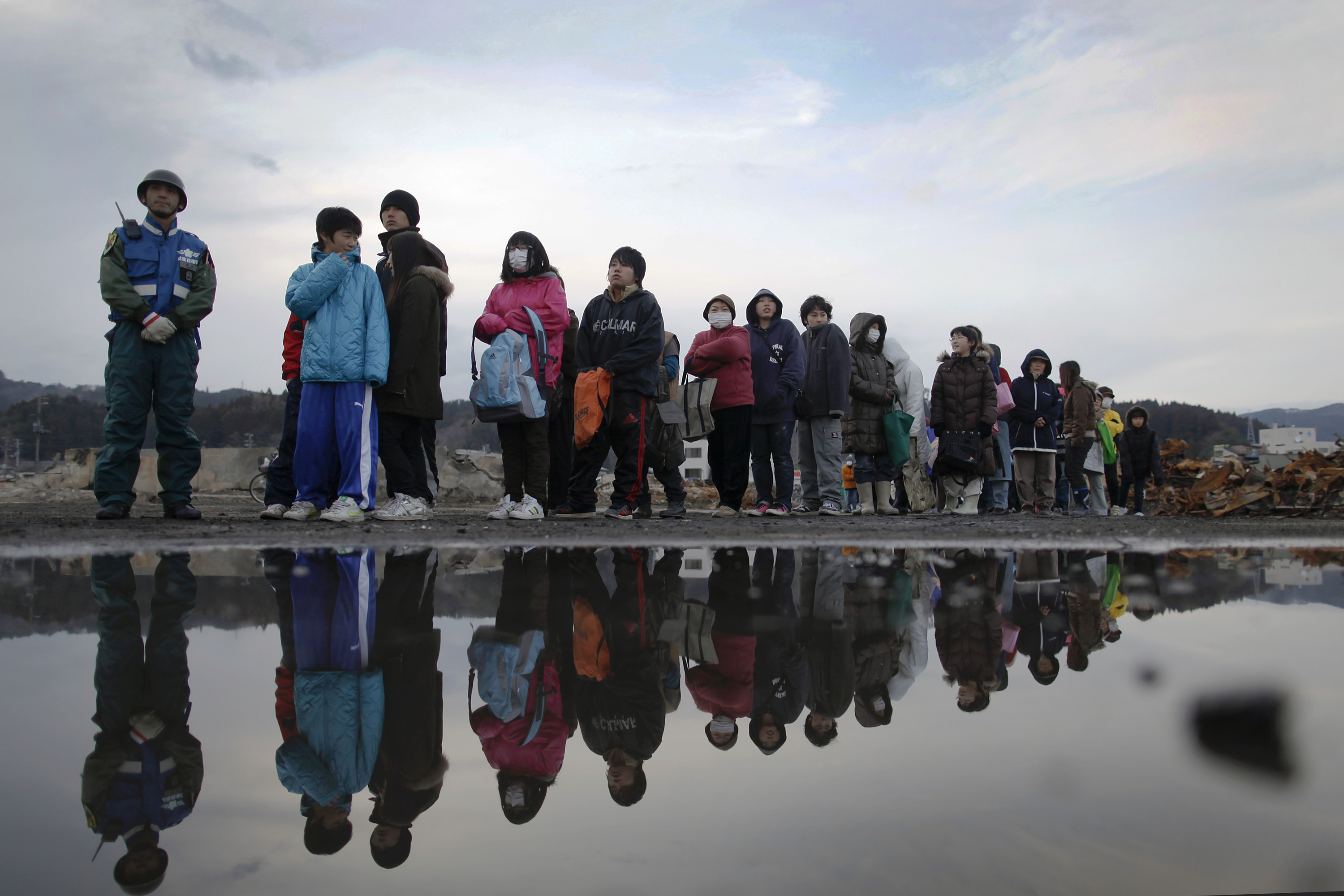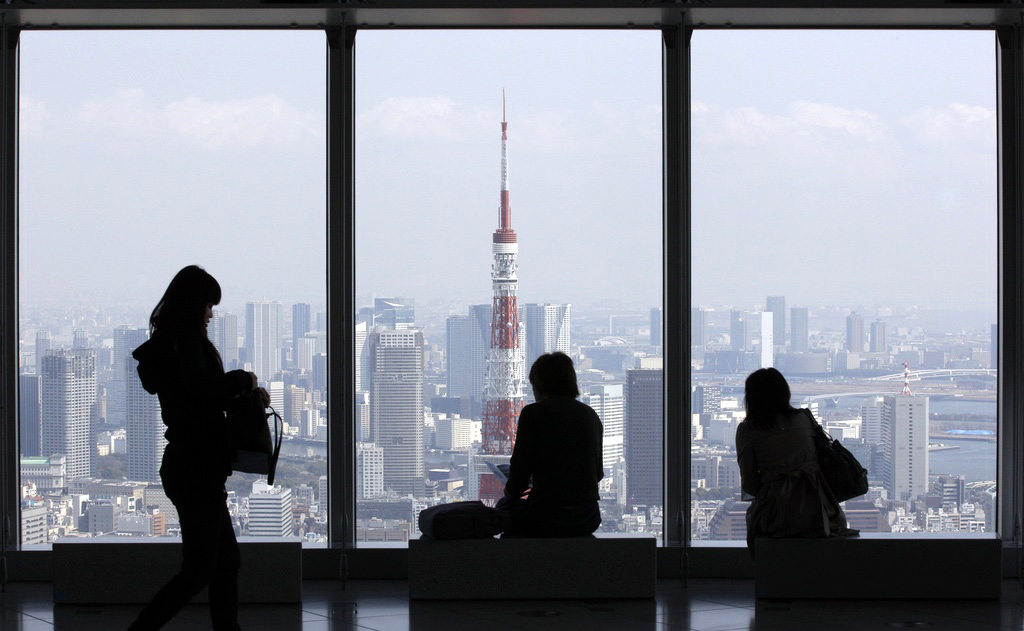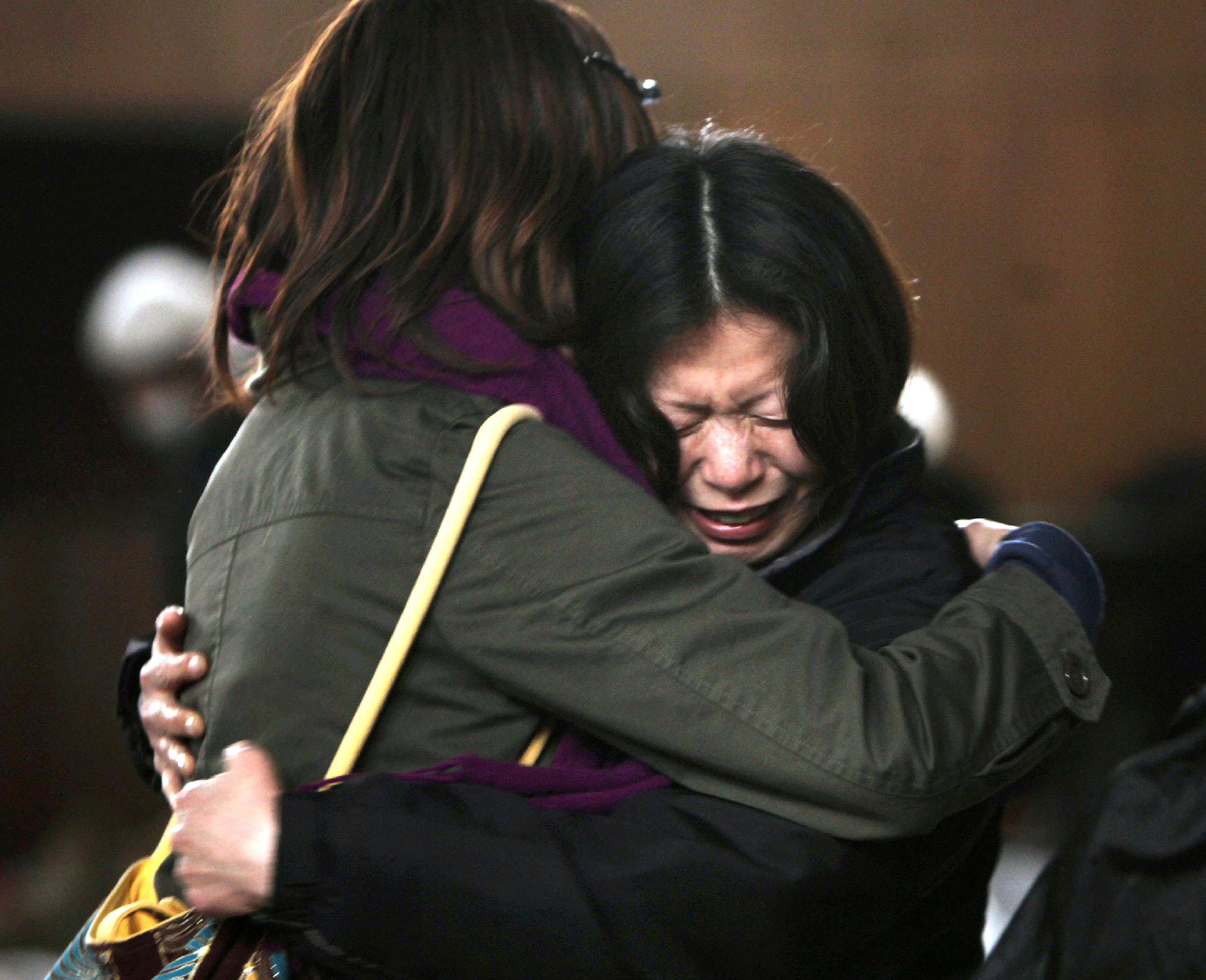Swiss-based Japanese worry from afar

Japanese living in Switzerland have been trying to offer help and support to their friends and families suffering from the recent disasters in Japan.
But invitations they have sent to their loved ones to come to Switzerland have mostly been declined in the name of solidarity with their compatriots.
There appears to be a difference in attitude between the Japanese in Switzerland and those at home, as swissinfo.ch discovered after speaking to three Japanese women living in Neuchâtel, Bern and Schwyz. All three have family in Tokyo and the Kanagawa Prefecture near the Japanese capital.
“I sent iodine, but my family wondered why. They have no concept of danger. The only good it did was to calm myself and soothe my conscience,” says 50-year-old Michiko Nakamura (not her real name) in Neuchâtel.
“I got the idea from a friend living near Mühleberg [canton Bern] where there is a nuclear plant of the same type as Fukushima,” Nakamura said.
She said the fact her family did not feel in danger was down to the difficulty in obtaining information.
“My younger sister, who works caring for the elderly, said that the power cuts caused by the accident at Fukushima worry staff more. The elderly in her care are very unsettled. They call at all hours. So, frankly there is no time to watch the news on television. It’s too tiring!”
Information flow
This is not the case for Nakamura, who regularly follows the events in Japan via the internet and television. “After each new incident, the Japanese government says there are no problems. But it doesn’t contemplate the worst case scenario, let alone what to do in case of a real disaster,” she complains.
Yasuko Wigger, a dance teacher in Bern, also feels quite distant from Japan.
“I advised my friend in Tokyo to wear a mask and avoid the rain in order to guard against nuclear radiation but she coldly replied that there was the risk of another quake at any time and that I did not understand our current situation because I was far away.”
In Switzerland, just after the tsunami, the media was quick to highlight the dangers if the cooling systems at the nuclear plants failed. In Japan, the press waited two weeks.
According to Wigger, this difference in disseminating information has influenced perceptions of the seriousness of the risks. She says informed people such as scientists are more likely to grasp what is really happening.
Offer of refuge
Wigger has asked her parents to come to Switzerland – an invitation they didn’t seem to want. “My father is 79 and teaches biology at a private school. My mother is caring for refugees from Fukushima, who have taken shelter in a stadium near her home,” she explained.
She says they told her that they were busy helping with the refugees and, after fulfilled lives, were not frightened of death.
Wakano Schmidt, aged 42, lives in Schwyz and has parents living in the Kanagawa prefecture. “My husband suggested that at least my mother should come and live with us,” she said.
“But my mother will never leave Japan. I could hear that in her voice on the phone. If she were to fall ill because of nuclear radiation, I think she would spend the rest of her days in her community aiding others and receiving assistance. I certainly understand her decision. If we were to receive someone, it would be a young member of the family.”
Swiss response
The three women have been pleased by the Swiss response to the disaster.
“The Swiss are like the Japanese. At first, they left us alone, but after five days, they demonstrated their solidarity with us and offered to put up members of our family, if needed. That was really appreciated,” says Wigger.
Nakamura, who works for a cosmetics company, also wanted to bring her family to Switzerland. The travel agent immediately reserved five tickets and even offered to put up everyone at his place.
In the end only a niece and nephew came for two weeks during their school holidays.
Calm and dignified
The Swiss admire the calm and dignity of the Japanese in the face of this crisis.
“At the beginning I thought they were making fun of the Japanese being too submissive to authority and then I understood that the Swiss were being sincere,” Nakamura said.
But she adds: “Personally I am frustrated. The Japanese do not express themselves enough. If they are unhappy they should show it. If they are angry at the lack of information, they should say so.”
On the other hand, Wigger was impressed to see her compatriots queuing in a shop in the dark, because of electricity restrictions – in a peaceful and orderly manner.
Collection at the Winterthur Spring Festival on April 10.
Fundraising concert of the electro pop group Tim & Puma Mimi at 8pm at the Rote Fabrik in Zurich on April 10. Proceeds to the Swiss Red Cross.
Fundraising concert by Zuinokai choir at Neuchâtel at 5pm on April 10.
Fundraising concert at Zurich’s Tornhalle, 7.30pm on April 12. Proceeds to Swiss Solidarity.
Japan’s Fukushima Dai-ichi nuclear complex has been spewing radioactivity since March 11, when a magnitude-9.0 earthquake and ensuing wave knocked out power, disabling cooling systems and allowing radiation to seep out of the overheating reactors.
The plant operator is trying to restore control over all reactors at the plant. It is also spraying resin onto radioactive dust to stop it being carried in the wind.
So far, 11,800 deaths have been confirmed. More than 15,500 people are still missing.
Three weeks after the twin disasters, more than 165,000 people are living in shelters, 260,000 households still do not have running water and 170,000 do not have electricity.
Japanese manufacturing activity slumped to a two-year low in March and posted the sharpest monthly fall on record.
The estimated cost of damage is to top $300 billion, making it the world’s costliest natural disaster.
(Translated by Emma Tanimura)

In compliance with the JTI standards
More: SWI swissinfo.ch certified by the Journalism Trust Initiative




You can find an overview of ongoing debates with our journalists here . Please join us!
If you want to start a conversation about a topic raised in this article or want to report factual errors, email us at english@swissinfo.ch.